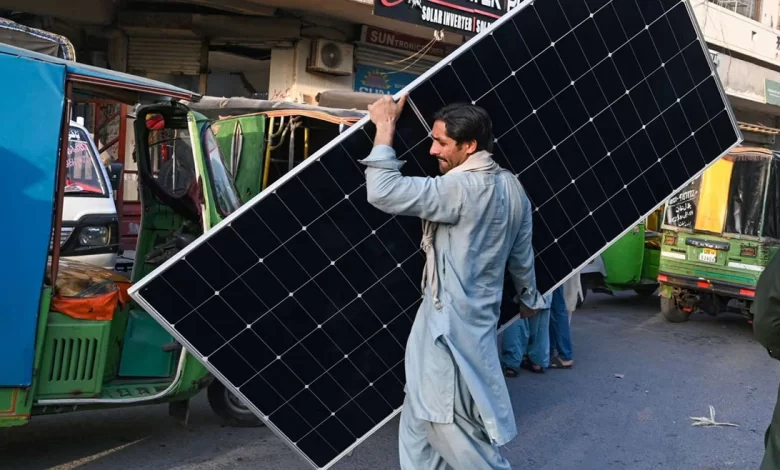Pakistan Imports 32,000MW Solar Panels; Parliament Rejects Tax to Protect Consumers
Local vs Imported: Solar Policy Divides Parliament, Industry on Edge

ISLAMABAD: Pakistan has imported solar panels with a combined generation capacity of 32,000 megawatts, according to an official document released to the media. The data reveals that around 2.25 billion solar panels have been brought into the country, marking a significant shift toward renewable energy but also sparking serious debate about its implications for domestic solar manufacturing.
Of the total capacity, 6,271MW has been connected through net metering, enabling consumers to sell excess electricity to the grid. Another 6,506MW has been installed without net metering, and 5,521MW remains off-grid, serving remote or standalone energy needs. The remaining 13,000MW capacity lies in unused inventory, indicating massive future potential.
However, while this expansion of renewable energy signals progress, it has simultaneously triggered concerns from Pakistan’s local solar industry. Sources have alleged that “tax-free imported solar panels are being dumped” into the market, disrupting domestic manufacturing which is already taxed at 18% on parts used in local assembly.
To curb this imbalance, the federal government proposed an 18% general sales tax (GST) on imported solar panels in the FY2025–26 budget. But in a significant development, the National Assembly Standing Committee on Finance, chaired by MNA Naveed Qamar, rejected the proposed tax on Tuesday.
Chairman of the Federal Board of Revenue (FBR) explained during the session that complete imported panels currently remain tax-free, whereas locally assembled panels incur an 18% GST on parts, leading to a growing disparity.
The tax proposal faced stiff opposition within the committee. Mirza Iftikhar, a committee member, argued against taxing renewable energy solutions, stating, “Imported solar panels are cheaper, and locally produced ones are substandard.”
However, MQM’s Javed Hanif submitted a note of dissent, voicing support for the proposed GST, claiming that unregulated imports are “unfairly undermining the local solar industry.”
Despite the mixed views, the committee voted by majority to maintain the duty-free status of imported solar panels, shelving the proposed GST—at least for now.
Industry stakeholders remain divided. Proponents of the tax say local solar manufacturing must be shielded to survive, while others believe keeping solar imports tax-free is essential to accelerating Pakistan’s transition to clean energy.




